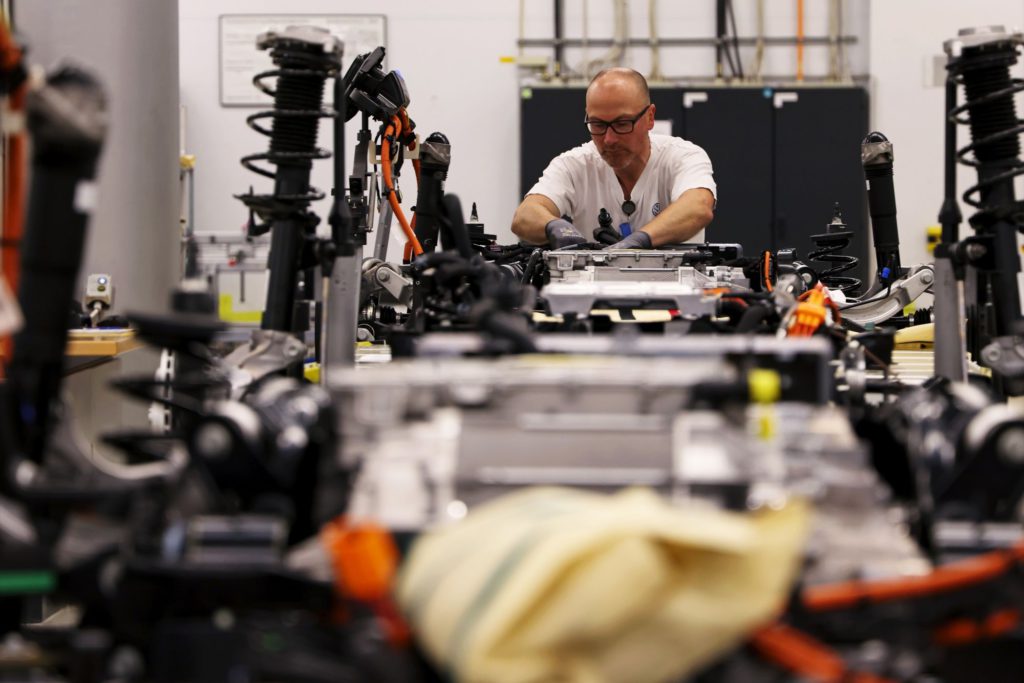(Bloomberg) — Sign up for the New Economy Daily newsletter, follow us @economics and subscribe to our podcast.
Germany’s economic recovery is coming under threat from a persistent global supply squeeze and rising Covid-19 infection numbers.
A key measure of business confidence in Europe’s largest economy by the Munich-based Ifo institute slipped to 99.4 in August from 100.7 in July. The drop was bigger than economists had predicted.
“It’s quite clear that the growth outlook will have to be revised downwards,” Ifo President Clemens Fuest told Bloomberg TV on Wednesday. He said shortages in intermediate products weren’t just confined to semiconductors, which has hit the nation’s dominant auto industry.
“It’s metal products, it’s plastic products, paper even. And then it’s certainly the pandemic,” he said.
Concerns about the outlook come as Germany prepares for next month’s elections that will see the winner succeed outgoing Chancellor Angela Merkel after 16 years in power.
The Bundesbank, Germany’s central bank, said this week economic growth this year may be somewhat lower than the 3.7% it had forecast in June. But Fuest said a lot depends on how long supply shortages will last.
“What we see in this month is that in manufacturing, things are actually getting worse rather than better,” he said. “If that continues it will be a significant downgrade of the growth outlook.”
Supply disruptions as well as rising infections have emerged as key challenges to a global economy initially believed to have put the worst of the pandemic behind.
Data on Wednesday showed that Switzerland’s export-reliant economy is also increasingly burdened by the supply problems. A sentiment index by Credit Suisse plunged by almost 51 points in August to -7.8.
A poll among some 3,000 German companies last week showed that the majority only expects supply-chain problems to improve next year. Businesses have also started to pass on rising costs for intermediate products to customers, according to the survey.
Consumer spending helped make up for weaknesses in manufacturing in the second quarter for Germany, as services came roaring back after pandemic curbs were loosened. Yet with the delta variant causing cases to rise, concerns are growing for these sectors as well, Ifo said.
“We see that in the sectors most threatened by that development — tourism, hospitality, restaurants — expectations for the next six months are declining,” Fuest said. “If more people are vaccinated, we can live with higher infection numbers and the increase will be dampened, but if vaccinations continue to slow, we really have a problem.”
(Updates with quotes from Ifo president from the third paragraph.)
More stories like this are available on bloomberg.com
©2021 Bloomberg L.P.











